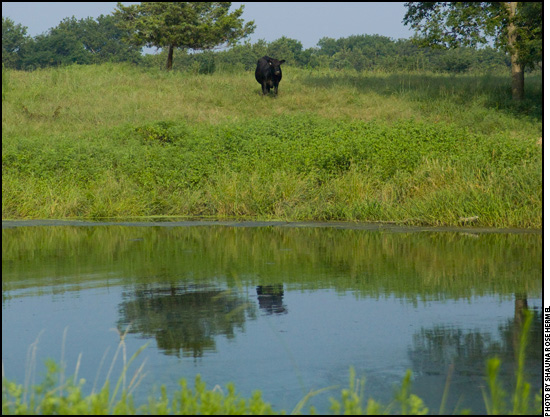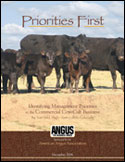
Preparation is the Key
For Winter Pond Management
It is that time of year when ponds are steaming early in the mornings with a visible fog that unmistakably signals that fall is upon us. As the pond cools with the chill in the air, pond owners have some preparation work necessary to be able to enjoy a well-deserved winter's rest in the coming months.
"Fall and spring are good times to mow the dam, if slopes are gentle enough to do so safely," said Marley Beem, Oklahoma State University (OSU) Cooperative Extension aquaculture specialist. "Inspect for animal burrows and eliminate any animals digging into your dam."
Trees, shrubs and holes dug out by wildlife can challenge the integrity of the dam. To prevent surface erosion, grass is the only plant recommended on dams. Use herbicides or mechanical means to eliminate young trees and shrubs, if mowing cannot be done.
Planning ahead for the possibility of ice cover could save pond owners much trouble over the winter. Children should be told not to walk on the ice and a light wooden ladder, poles, rope and life jackets should be kept nearby to facilitate rescues.
"Take steps to keep livestock off of the ice, to avoid them breaking through," Beem said. "Think about fencing the pond and installing a freeze-proof tank below the dam to prevent the chance of livestock falling though the ice and to keep you from having to chop ice."
Livestock like these tanks because the water is warmer than on the surface of the pond.
While this time of year provides a good time for these steps to be taken, it is not a good time for other applications.
 "Now is not the time to be trying to get rid of aquatic weeds," Beem said. "Pond plants have 'set seed' and the seeds and other propagules will not be killed by herbicides or other control measures."
"Now is not the time to be trying to get rid of aquatic weeds," Beem said. "Pond plants have 'set seed' and the seeds and other propagules will not be killed by herbicides or other control measures."
Pond owners should contact their local county Extension educator for assistance in selecting the right herbicide application for the upcoming spring.




